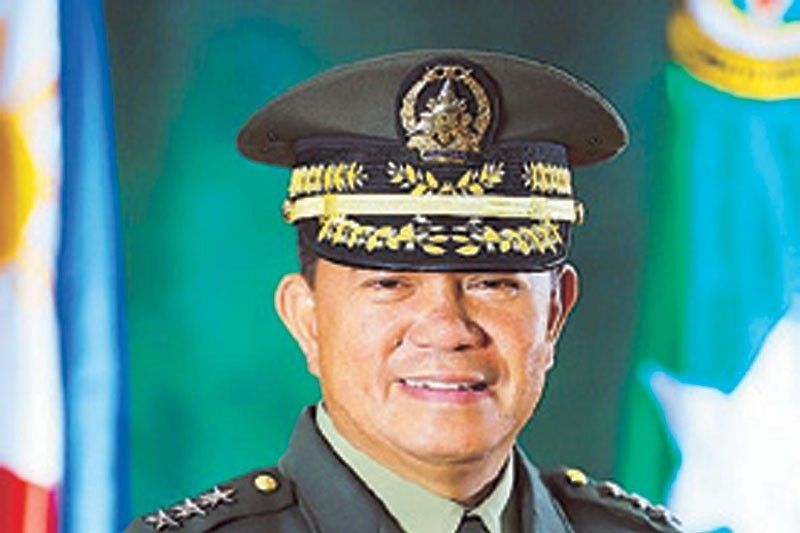New AFP chief wants to regulate social media through the anti-terrorism law

MANILA, Philippines — Lt. Gen. Gilbert Gapay, newly appointed Armed Forces of the Philippines chief, said he wants the implementing rules of the Anti-Terrorism Act of 2020, already facing challenges in court for allegedly being unconstitutional, to cover social media use.
Justice Secretary Menardo Guevarra, whose department heads in crafting the law’s Implementing Rules and Regulation, however said it is still “too early to say” if the guidelines will be included, but he explained that the military will be consulted as they continue on the crafting.
The Department of Justice and the Anti-Terrorism Council—composed of Cabinet members—started working on the anti-terrorism law’s IRR. They have 90 days from enactment of the law to issue the guidelines.
Guevarra said that as the DOJ legal team goes along with the drafting of the IRR, they will “consult with law enforcement and military institutions,” including intelligence agencies.
He has previously said that of protest placards that "if the contents merely express a position on public issues, such as one’s stand against the [Anti-Terrorism Act of 2020]...the same constitute a lawful exercise of one’s freedom of speech or expression protected by the Constitution."
'Curb radicalization of the youth'
In a press briefing after he officially assumed his post as AFP chief, Gapay said that they would suggest provisions on “how to curb radicalization of the youth so will be providing some inputs on countering violent extremism.”
He added that he would also recommend “even regulating social media because this is now the platform being used by terrorists to radicalize, recruit and even plan terrorist acts.”
“We need to have specific provisions on this, in the IRR, pertaining to the use of social media,” Gapay stressed.
The military chief did not expound on his proposal to regulate social media, but he stated that they will “capitalize on this very, very good anti-[terrorism] law” that he described as “comprehensive and proactive.”
Gapay also said that they would suggest inclusion of provisions on "enhancing intelligence sharing, strengthening maritime security, and regulating materials used in the manufacture of improvised explosive devices."
He also pointed out that the law is “geared to prevent the occurrence of terrorist act,” saying they should be stopped even at the planning stage.
The military and 'red-tagging'
The anti-terrorism law, a month since Duterte signed it into law, is facing at least 21 legal challenges before the Supreme Court.
The petitioners, composed of Constitution Framers, legal luminaries, academe, journalists, rights groups, youth and Moro lawyers, assailed the law for its “overbroad” and “vague” definition of terrorism and the other crimes penalized under it. This makes these provisions prone to abuse and left its interpretation to the discretion of law enforcers—police and military—whose history of red-tagging does not inspire assurance of fair implementation of the law.
Several social media accounts of Philippine National Police offices have already been documented vilifying activists and left-leaning groups.
Philippine jurisprudence defines red-tagging as “the act of labelling, branding, naming and accusing individuals and/or organizations of being left-leaning, subversives, communists or terrorists (used as) a strategy... by State agents, particularly law enforcement agencies and the military, against those perceived to be ‘threats’ or ‘enemies of the State.’”
Labor union leaders, activists, journalists and youth groups cited their own experience of being accused of “terrorist sympathizers” or even “terrorists” themselves, even before the law was instituted, in making their case before the tribunal.
The latest petition filed against the Anti-Terrorism Act of 2020 came from social media personalities who asserted that t cyberspace in the Philippines must be free, as the Bill of Rights and international human rights obligations also apply to the internet.
They said that the anti-terrorism law only accomplishes what actual terrorists and corrupt government officials wish to do: “Create a climate of fear, limit our liberties and freedoms, evade and pass accountability for their acts, and disrupt our supposedly democratic way of life.”
- Latest
- Trending






























